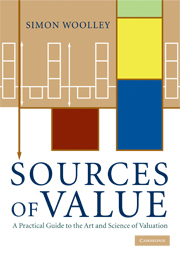Book contents
- Frontmatter
- Contents
- List of figures
- Preface
- Acknowledgements
- Section I The five financial building blocks
- Section II The three pillars of financial analysis
- Section III Three views of deeper and broader skills
- 11 First view: The cost of capital
- 12 Second view: Valuing flexibility
- 13 Third view: When value is not the objective
- 14 Overall conclusions
- Appendices Individual work assignments: Suggested answers
- Glossary
- Bibliography
- Index
12 - Second view: Valuing flexibility
Published online by Cambridge University Press: 22 January 2010
- Frontmatter
- Contents
- List of figures
- Preface
- Acknowledgements
- Section I The five financial building blocks
- Section II The three pillars of financial analysis
- Section III Three views of deeper and broader skills
- 11 First view: The cost of capital
- 12 Second view: Valuing flexibility
- 13 Third view: When value is not the objective
- 14 Overall conclusions
- Appendices Individual work assignments: Suggested answers
- Glossary
- Bibliography
- Index
Summary
Introduction
This second view of broader and deeper skills also starts with a press release announcing the award of a Nobel Prize in Economics. This time the date was 14 October 1997 and the award went to:
Robert C Merton; and
Myron S Scholes, for devising a new method to determine the value of derivatives.
The press release also recognised the late Fischer Black. He, along with Myron Scholes had, in 1973, published the pioneering formula for the valuation of stock options which takes the name of the Black-Scholes formula. Robert Merton's contribution was to show another way to derive the formula and to generalise it in many directions. The methodology has, to quote from the press release, paved the way for economic valuations in many areas. It has also generated new types of financial instruments and facilitated more efficient risk management in society.
These words hardly do justice to the transformation that has been facilitated by the ability to calculate the worth of a financial option. Although many people, typically those with less financial sophistication, view so-called derivative products with suspicion, I consider them to be fantastic innovations which allow financial risk to be managed in a professional way. In particular they allow various types of risk to be transferred to those who are best placed to cope with them and this, in turn, serves to reduce the overall cost of risk to society.
Now when the Nobel Prize was awarded, other uses for options valuations were expected soon to allow the valuation of insurance contracts, guarantees and the flexibility of physical investment projects.
Information
- Type
- Chapter
- Information
- Sources of ValueA Practical Guide to the Art and Science of Valuation, pp. 462 - 522Publisher: Cambridge University PressPrint publication year: 2009
